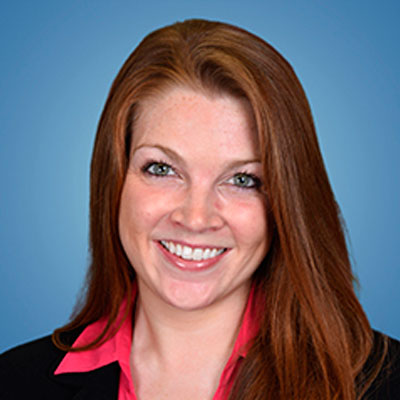By the time Appalachian State University alumna Caroline Cochrane sat down with her advisor to commit to a major, she had considered the health sciences, sociology, psychology, biology and also knew she wanted to learn Spanish. She didn’t know which option to pick.
“He explained to me that no major or concentration would ruin my chances at anything I wanted to do if I worked hard enough within my studies,” Cochrane said. “He was right, of course, and I was able to do everything I wanted to and still have had no problems getting into medical school.”
Cochrane committed to the Biology (BA) program. After graduation, she chose to stay at Appalachian to earn a Master of Science, Cellular Molecular Biology degree. Cochrane is now finishing up medical school at University of North Carolina-Chapel Hill and said her undergraduate research gave her a strong foundation and her classes taught her how to study, which paved the way for her career in medicine.
“The faculty in the Department of Biology are helpful and friendly. They will so often go out of their way to help you if you are honestly trying, and I owe them so much of my success now,” Cochrane said.
Cochrane began research as an undergraduate and continued as a graduate student. Working with Dr. Ted Zerucha, she researched developmental genetics and molecular lab work: the basic science she would learn in medical school.
“I fell in love with the lab and my lab mates, and really respected and admired Dr. Zerucha for his teaching style and how he ran his lab,” Cochrane said.
She realizes that even her time as an Appol Corps leader prepared her for working with hospital patients.
“That program really gave me so much confidence in myself and taught me many of the people skills in making conversation with total strangers that I still rely on and use on a daily basis,” Cochrane said.
“Patients look at you when you wake them up at 6 a.m. the same way that incoming freshmen do when you say ‘Time to play an icebreaker!’ Appol Corps taught me how to read and interpret difficult interactions and navigate them with self-confidence.”
As a student, Cochrane also served on the Health Professions Advising Committee, a group that works with pre-professional medical students applying to advanced degree programs.
“That experience allowed me to share my experience going through the application and interview regimen for medical schools with other students who were embarking on that journey,” Cochrane said. “It was a very fun experience for me mentoring other students, and two of them actually attend UNC Med in the class beneath mine now.”

